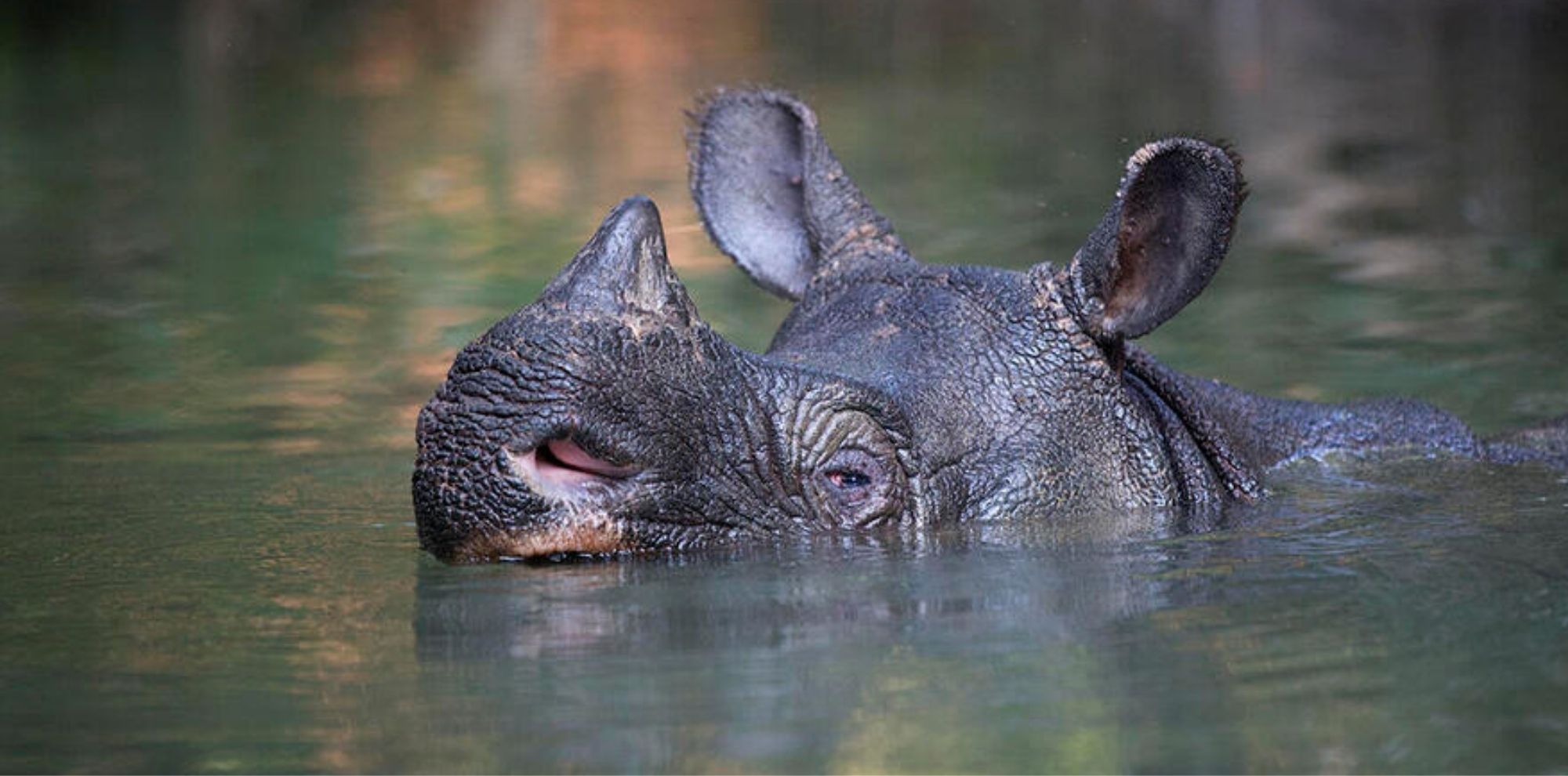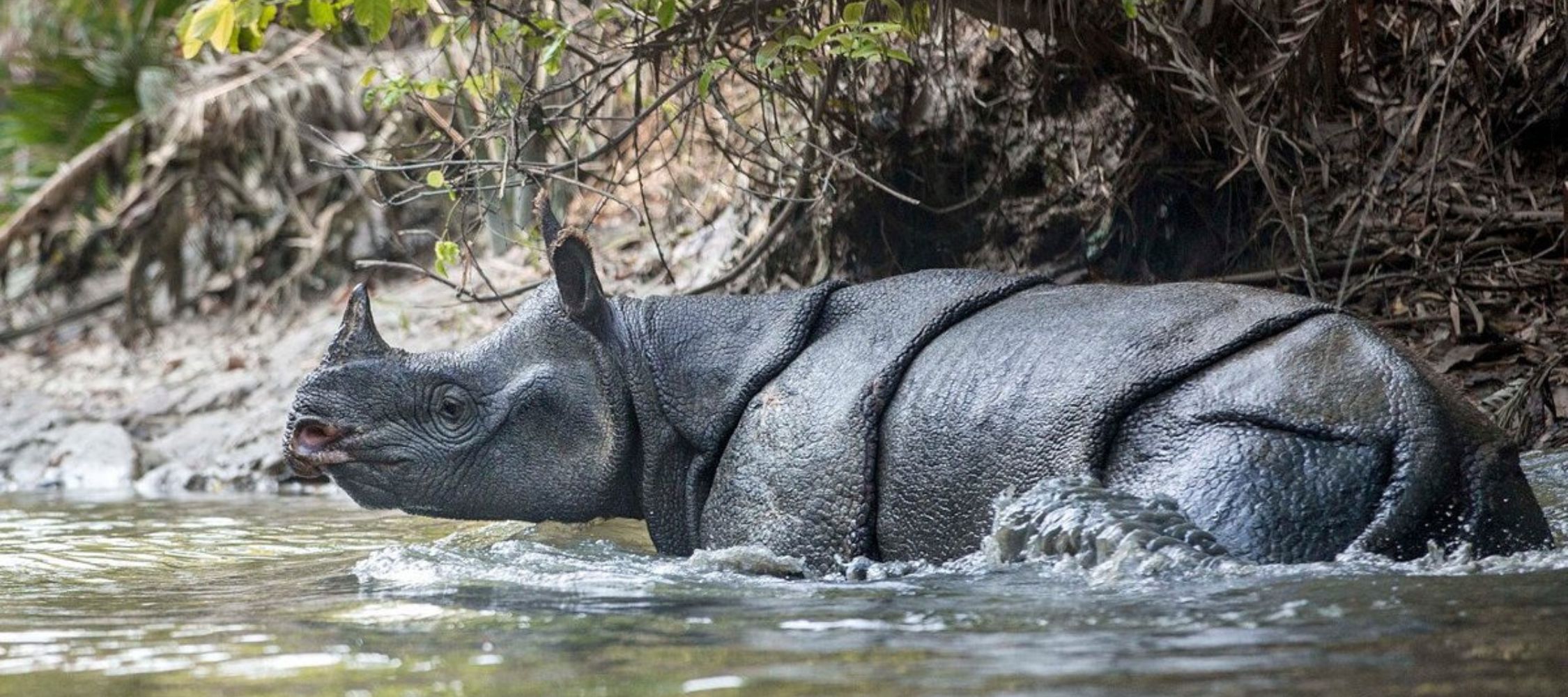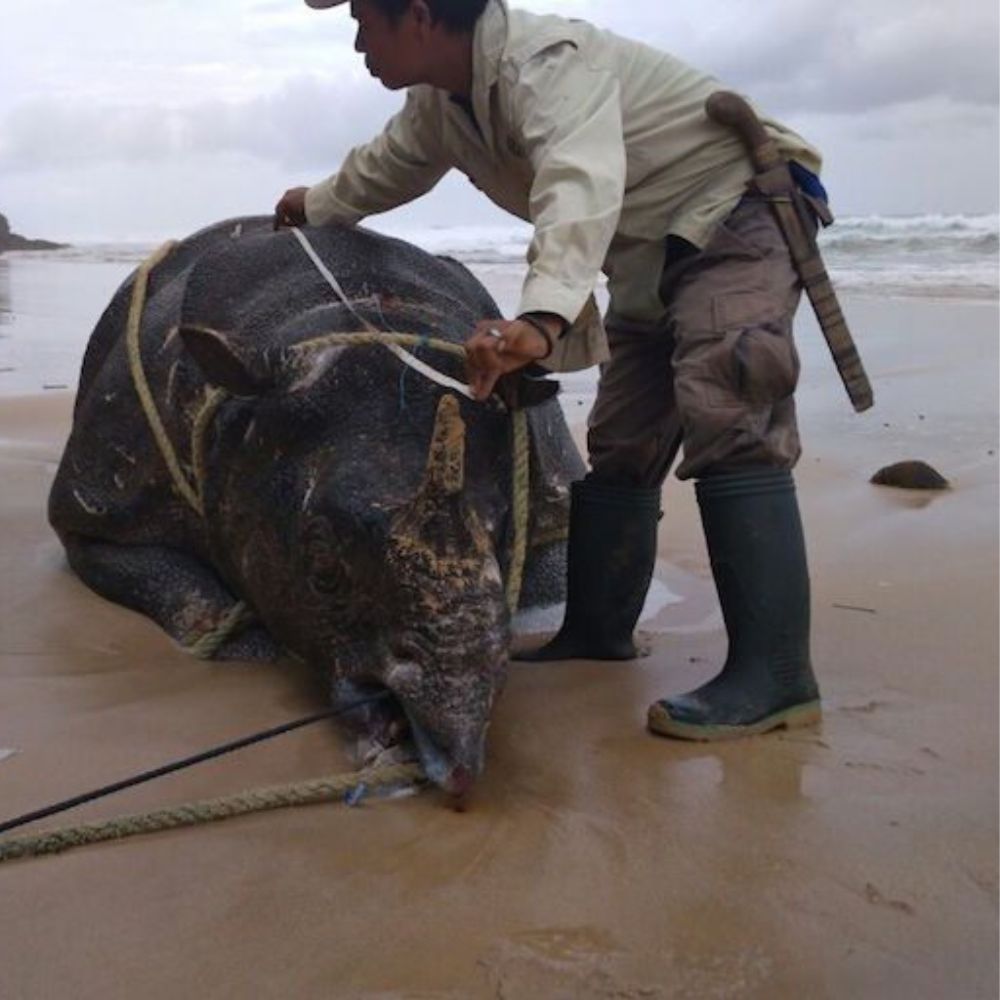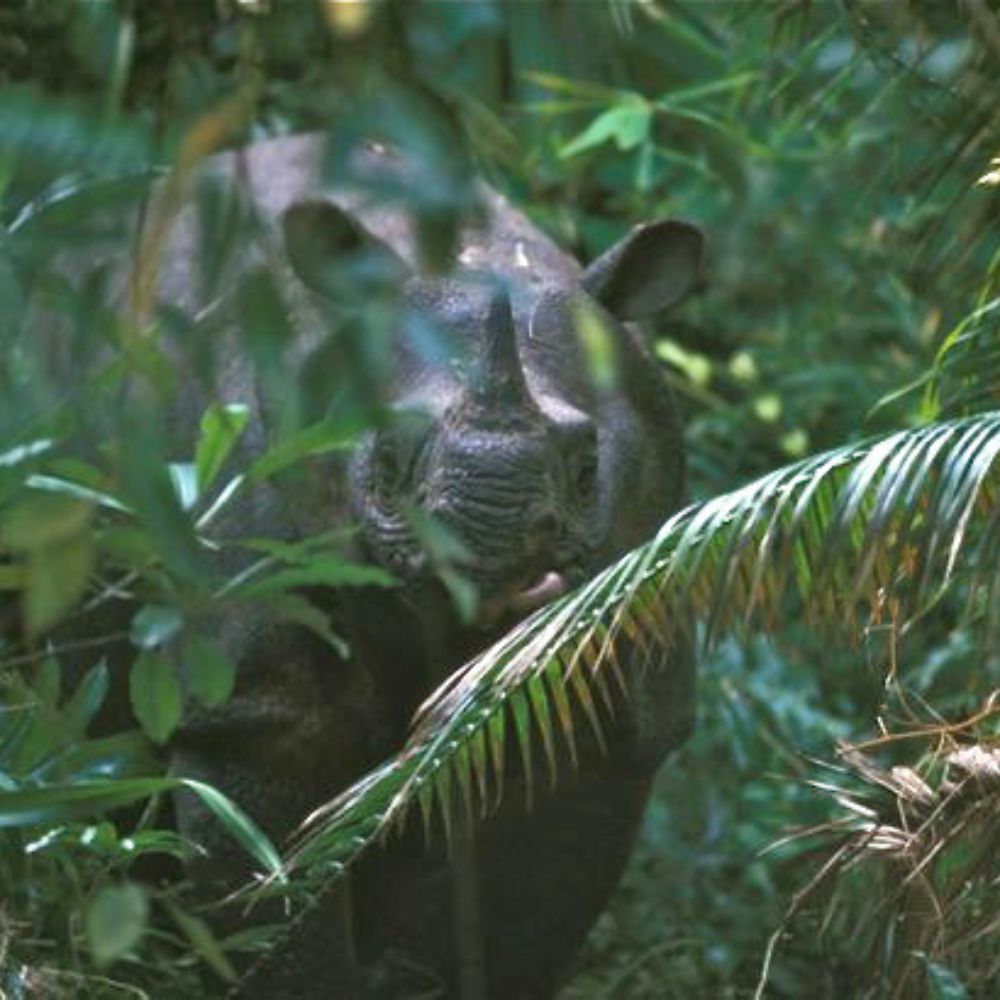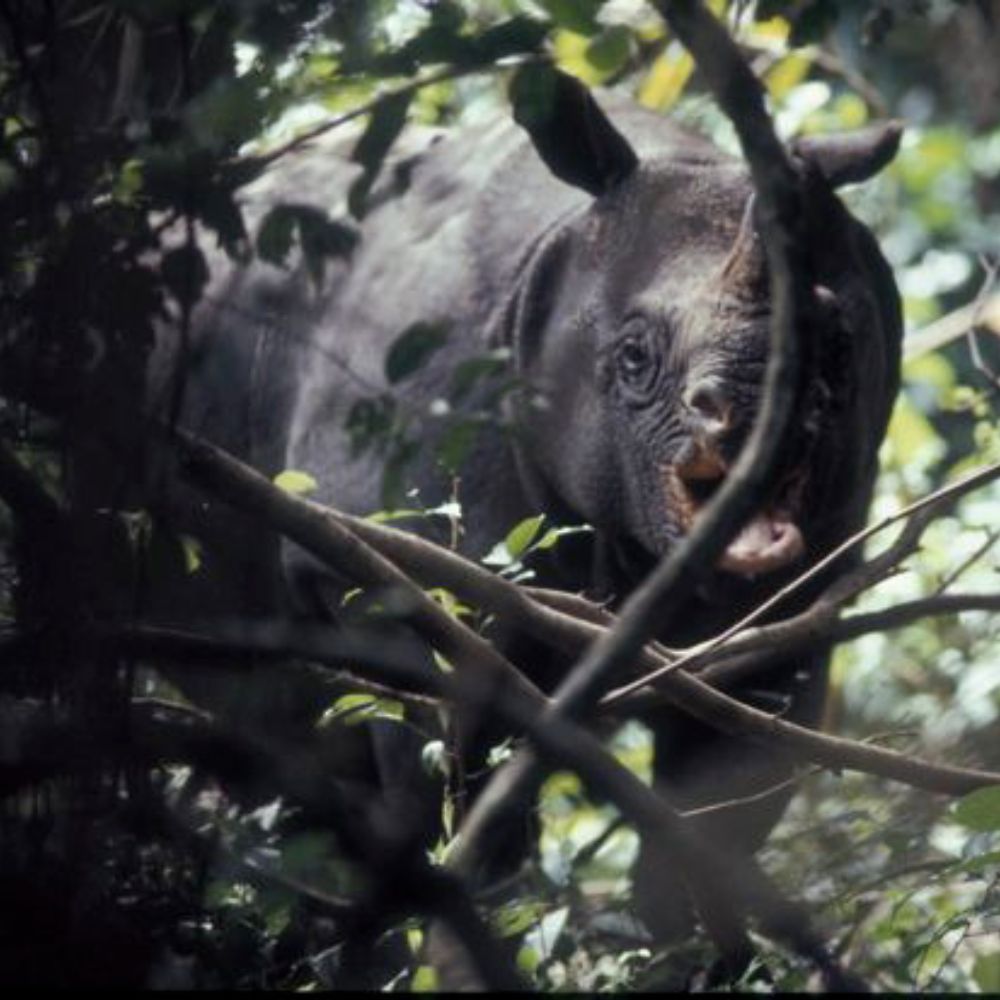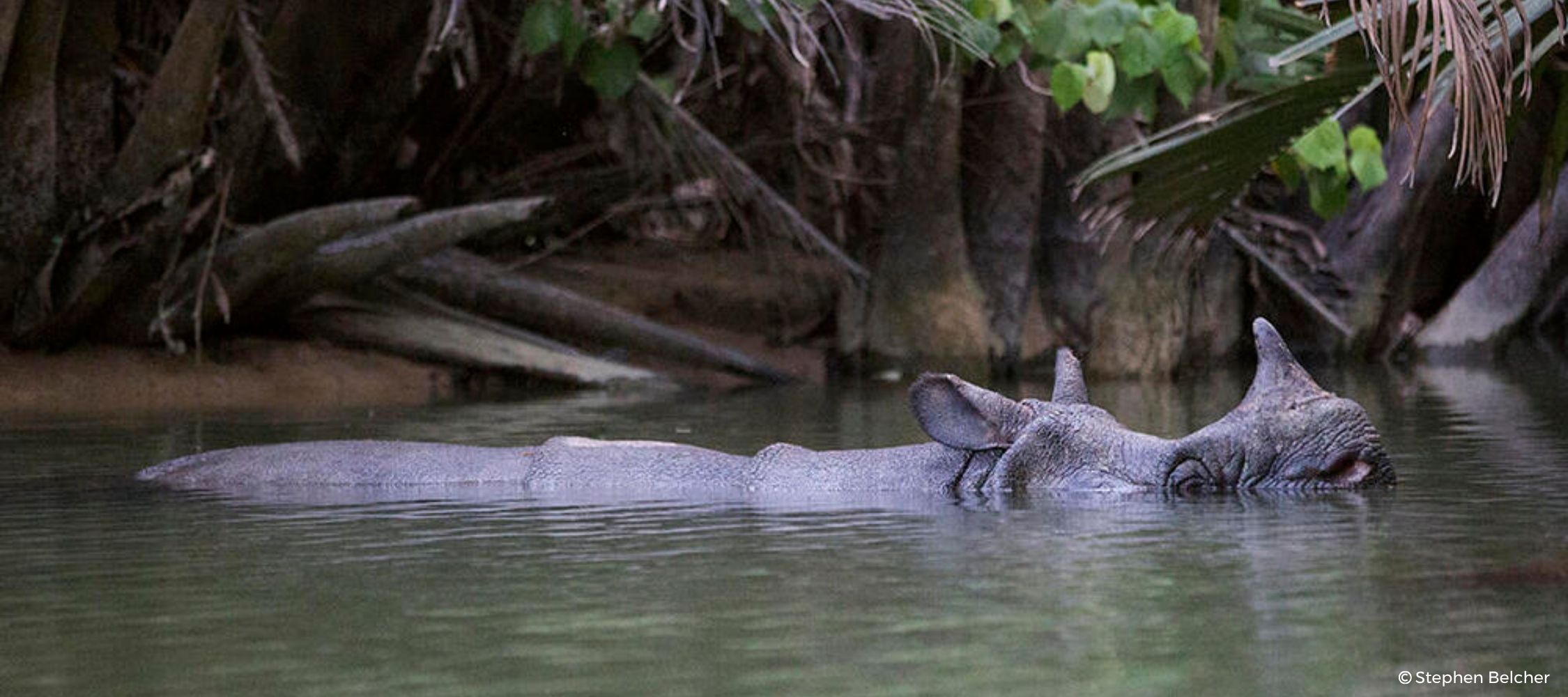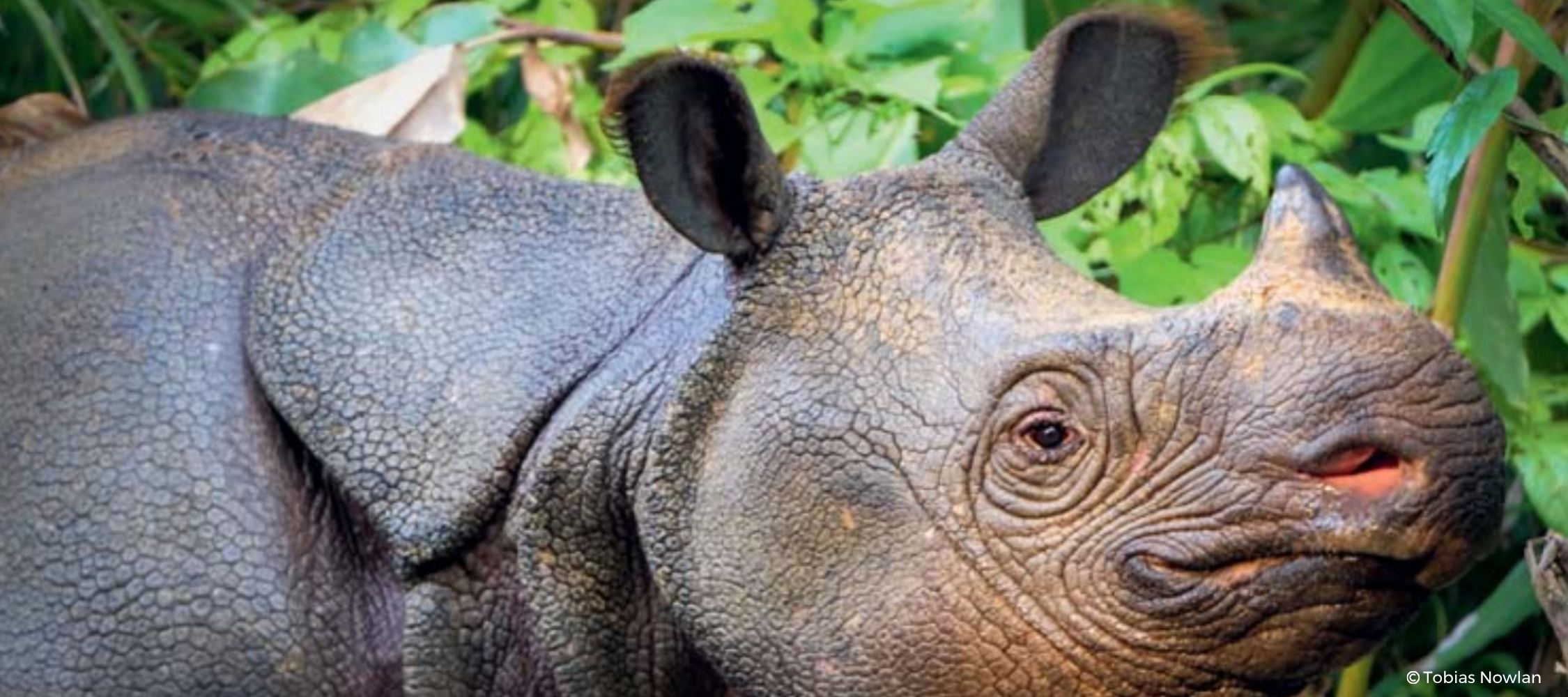These combined challenges threaten the already critically low population and risk the collapse of the delicate ecosystem they help sustain. Anti-poaching patrols and real-time camera trap monitoring compound the efforts to safeguard the world's last Javan Rhinos from illegal hunting, but they are not enough on their own.
Restoring native vegetation is essential to provide adequate food for the Javan rhino, and training local guardians will significantly improve the effectiveness of conservation and population monitoring.
Supporting rangers will empower local communities to create safe wildlife corridors and develop sustainable livelihoods, both key to securing the Javan rhino’s future and strengthening the ecosystem of Ujung Kulon National Park. One of our main goals is to establish an operations base for the local teams, which will enhance ongoing efforts in habitat restoration, monitoring, and conservation, particularly in remote areas.
This base will also serve as a hub to train and equip community-based field teams, offering income opportunities linked directly to conservation, ensuring long-term stewardship and resilience.
